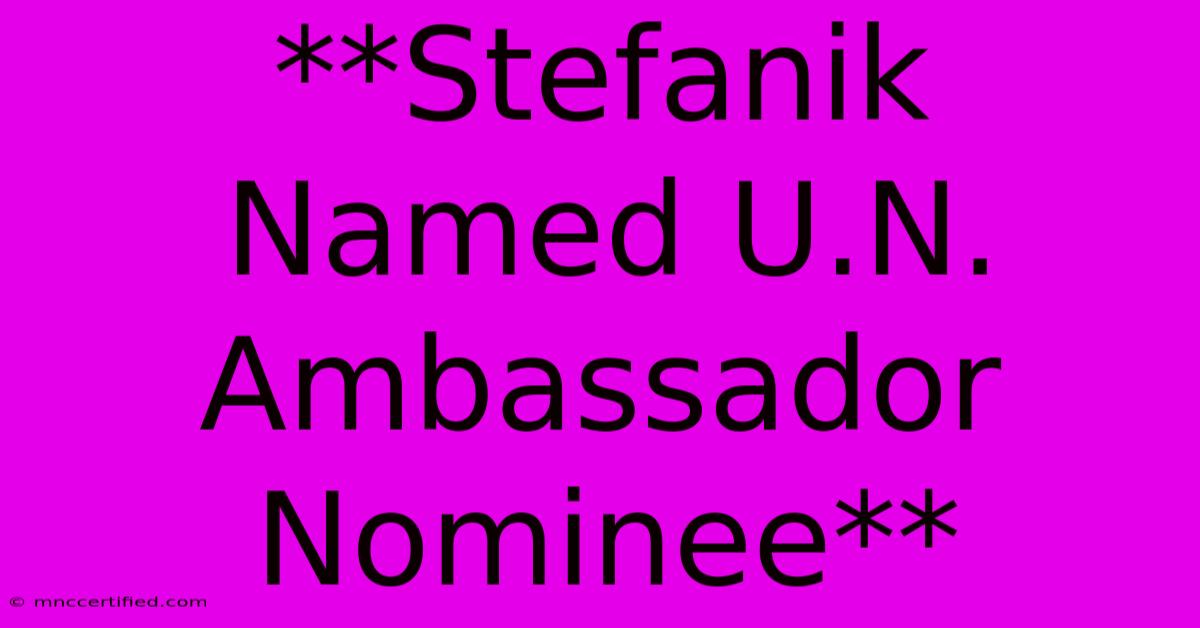**Stefanik Named U.N. Ambassador Nominee**

Table of Contents
Stefanik Named U.N. Ambassador Nominee: What Does This Mean?
President Biden has nominated Congresswoman Elise Stefanik to be the next United States Ambassador to the United Nations. This nomination has sparked significant conversation and raised questions about her qualifications, political affiliations, and the future of US foreign policy.
Who is Elise Stefanik?
Elise Stefanik, a Republican representative from New York, has served in the House of Representatives since 2015. She rose to prominence as a vocal supporter of former President Donald Trump and became a leading figure in the Republican Party.
Known for her conservative views, she has been a vocal critic of the Biden administration, particularly on issues like climate change and economic policy.
What are the Potential Implications of This Nomination?
Stefanik's nomination has been met with mixed reactions. Supporters highlight her experience in government and her strong stance on American interests, while critics point to her lack of foreign policy expertise and her controversial past statements.
Here are some key implications of this nomination:
1. Shift in US Foreign Policy: Stefanik's appointment could signify a shift in US foreign policy, potentially leading to a more assertive and less collaborative approach on the world stage. Her background suggests a potential emphasis on national security and a more hardline approach to dealing with adversaries.
2. Impact on International Relations: Her nomination may impact US relationships with key allies and adversaries. Her past criticisms of some international organizations and her strong stance on certain issues could lead to increased friction.
3. Implications for the UN: The nomination raises questions about the US commitment to multilateralism and the role of the UN. Her past criticisms of the organization could create uncertainty about her leadership within the UN and its future.
What's Next?
The Senate will now consider Stefanik's nomination. The process may be lengthy and contentious, with potential for heated debate on her qualifications and political affiliations.
The nomination presents a significant moment for the US foreign policy landscape, and its implications will be closely watched by diplomats and policymakers worldwide.
This article provides a brief overview of the situation. For the latest developments and analysis, be sure to follow reputable news sources.

Thank you for visiting our website wich cover about **Stefanik Named U.N. Ambassador Nominee**. We hope the information provided has been useful to you. Feel free to contact us if you have any questions or need further assistance. See you next time and dont miss to bookmark.
Featured Posts
-
Megan Fox Expecting Baby Machine Gun Kelly Father
Nov 12, 2024
-
Megan Fox And Mgk A Love Story
Nov 12, 2024
-
Trump Selects Homan Miller For Border Leadership
Nov 12, 2024
-
U S Financial Life Insurance Company
Nov 12, 2024
-
Gary Lineker Exits Match Of The Day After Controversy
Nov 12, 2024